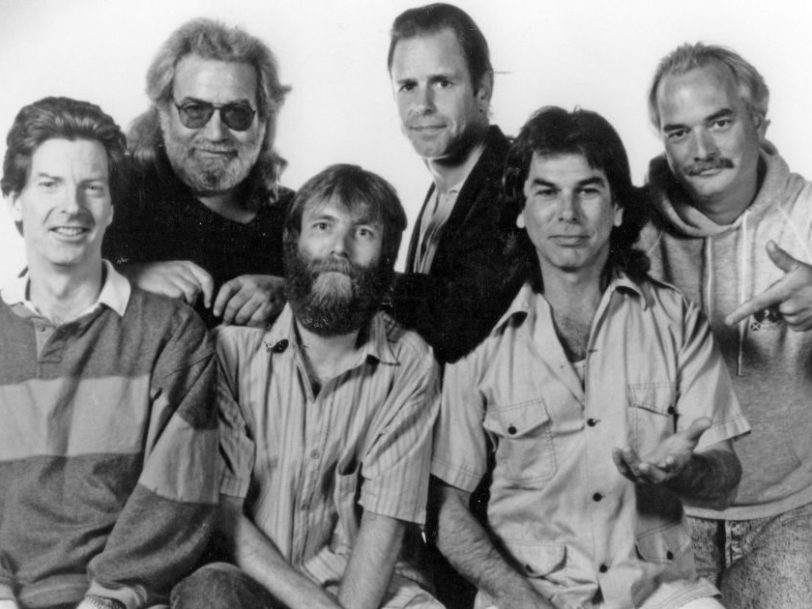To the casual observer, the release of Grateful Dead’s seventh studio album, 1974’s From The Mars Hotel, suggested the band were properly back in business. It was released just eight months after Wake Of The Flood,, a lightning-quick follow-up considering the studio album before that was 1970’s American Beauty.
From The Mars Hotel also came at a point when mainstream interest in the band was higher than ever, thanks in part to the release of Skeletons In The Closet, a best-of covering the group’s Warner Bros era. And, just months before the release of their new album, the Dead had unveiled a state-of-the-art PA system, dubbed the “Wall Of Sound”, which put them ahead of the pack when it came to live shows.
Listen to the 50th-anniversary deluxe edition of ‘From The Mars Hotel’ here.
When did Grateful Dead use the “Wall Of Sound”?
First unveiled in March 1974, Grateful Dead used the “Wall Of Sound” until October 1974. However, the cost of that pioneering PA, in terms of building materials, technology and manpower, had gone through the roof (audio engineer Dan Healey estimated that the system cost $350,000 to build, let alone maintain and update), not to mention the logistics of transporting it across the country for each gig.
- Best Grateful Dead Albums: The Essentials, Ranked And Reviewed
- Grateful Dead: Why Jerry Garcia’s Group Are America’s Definitive Rock Band
- ‘Anthem Of The Sun’: Behind Grateful Dead’s New Creative Dawn
As ever with the Dead, beneath the relative prolificacy, success and innovation, an undercurrent of chaos was threatening to take hold. Tour manager Sam Cutler, an integral part of the group’s organisation since the early 70s, had been fired. And then there was the admin of running their fledging record label, Grateful Dead Records, along with maintaining payroll for an estimated 300-plus employees. Frontman Jerry Garcia picked up some of the slack by recording his second solo album, the covers set Compliments, in February 1974, but to keep the Dead circus on the road, a new studio album was needed.
Where was ‘From The Mars Hotel’ recorded?
Grateful Dead began recording From The Mars Hotel on 30 March 1974, at CBS Studios, in San Francisco. The album had the punning working title “Ugly Roomers”, and, as a nod to that early name, the words “Ugly Rumours” are written in mirrored text on the album’s front cover, underneath the record’s eventual title. The name From The Mars Hotel referred to a decaying San Francisco flophouse that had somehow escaped the gentrification gripping the city and, legend has it, once counted Beat Generation writer Jack Kerouac among its boarders.
Throughout the recording sessions, the Dead would meet each afternoon at Studio Instrument Rehearsals, handily situated across the road from CBS Studios, and run through the material they planned to record that evening. Later, they’d effectively have lavish dinner parties at the studio – Phil Lesh provided the fine wine – before recording late into the night.
The songs: Graceful and profound
The unconventional recording process certainly worked for the group. Released on 27 June 1974, From The Mars Hotel features some of the band’s most beloved material, with a clutch of its songs becoming live staples.
Opening track US Blues was a case in point: Garcia and lyricist Robert Hunter’s update of Carl Perkins’ Blue Suede Shoes was played live over 300 times by the band, often as a show’s closing encore. Although the Dead’s songs rarely pointed fingers, the group were, by dint of their position in the counterculture, a political band. As the song took shape in 1973 (first as a song titled Wave That Flag), the Watergate crisis gripped the country, and North America was pulling troops out of Vietnam. US Blues, with its knowing digs at all-American iconography, could be seen as a reaction to the tumultuous times.




